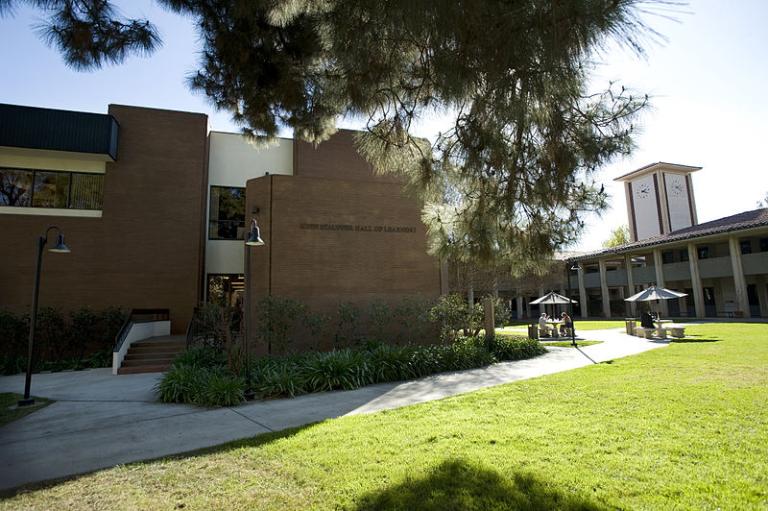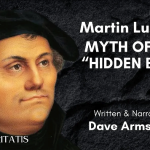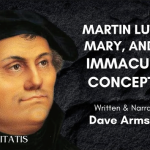
A potentially quite worthwhile development at Patheos, the host of my blog:
John Dehlin, a psychologist and a very visible former Latter-day Saint, and Patrick Mason, who holds the Howard W. Hunter Chair in Mormon Studies at California’s Claremont Graduate University, have launched an ongoing “dialogue” here on Patheos:
http://www.patheos.com/blogs/mormoninout/
It could prove interesting, and it’s possible that I’ll occasionally comment on it here — always viciously, dishonestly, and unfairly, of course.
I wish the undertaking well, and hope that it’s helpful to many.
***
So much for the announcement.
Here, though, is a bit of personal background that a few might find worth a glance, though others will think it too detailed or too much “inside baseball”:
Back in March 2016, presumably because I’m a very active Mormon blogger for them and am clearly on the believing and committed end of the spectrum (and, moreover, a character who might generate some attention [read controversy], the executive editor of Patheos invited me to partner with John Dehlin in this venture. I thought about it for a while, but I finally turned the invitation down. I had a number of reasons for doing so. For one thing, I didn’t want to be tied to the schedule that I thought such a partnering might entail (which would have been difficult, given not just my teaching load but my frequent travel schedule and my other writing and organizational priorities). For another, though, to be frank, I didn’t particularly relish becoming too closely involved with Dr. Dehlin. We’ve always been polite to one another in our limited personal interactions, but I haven’t appreciated a number of his public allegations against me.
To illustrate, here’s the relevant portion of a lengthy post that I put up here on Sic et Non back on 16 October 2013. (This was back, I think, before John Dehlin had completed his doctorate at Utah State University. Hence the references to him as “Mr.,” which weren’t designed to convey disrespect.)
Several people have either called my attention to a partial transcript of remarks made by John Dehlin on Doug Fabrizio’s KUER radio program following October LDS conference—Mr. Dehlin was “reviewing” conference speeches—or sent me copies of those remarks. I feel that I probably ought to respond publicly, since the remarks concern me and were made publicly. Here is what John Dehlin said:
“I actually believe that apologetics still has a very important place within Mormonism. If you look at the people who currently staff the Maxwell Institute today, if you look at Claudia and Richard Bushman, or Fiona and Terryl Givens, these are wonderful, insightful, thoughtful defenders of the faith. And I believe we need more of them, and that’s why we created a podcast called ‘A Thoughtful Faith’, to explore people who were thoughtful but also faithful. What we don’t need are apologists who are going to do exactly what President Uchtdorf urged us not to do, which is to judge and attack those who have sincere and earnest questions.
“The publication that Jonathan mentioned was a hundred plus page article that was being written about me, pulling quotes and comments from my facebook page and elsewhere to try and malign my character. I didn’t try and censor it. All I did is I made one General Authority aware of the publication. And he took it upon himself to go to the president of BYU, and to others, and to ask the question: is this the type of thing that the Church should be sponsoring? And I’m very pleased to say that these church leaders, and I understand that there was an apostle involved in the decision, they made the decision not only that that type of apologetics wasn’t welcome in the Church, but that the types of people who were sponsoring it probably needed to find new employment. And I think that’s a wonderful decision and I support it.”
I’ll let the first paragraph go essentially without comment. I like the Bushmans and the Givenses, consider them friends, and I like and respect their work. Still, I reject John Dehlin’s characterization of me—I’m plainly among his targets—as “judging” and “attacking those who have sincere and earnest questions,” though I’m impressed by the ease with which he wraps himself in the mantle of superior discipleship by implying his own closer alignment with a member of the First Presidency. Deftly done.
But I’ll move on to the second transcribed paragraph, because it reiterates a myth about me that needs to be publicly contradicted.
It begins with mention of Dr. Gregory L. Smith’s “Dubious ‘Mormon’ Stories: A Twenty-First Century Construction of Exit Narratives,” which has now been posted (along with an accompanying paper entitled “The Return of the Unread Review”) on the website of The Interpreter Foundation.
I’m struck by Mr. Dehlin’s apparent conviction that a concatenation of public quotations from him would tend to “malign [his] character.” But I’ll let that pass, too.
Mr. Dehlin believes that it was the Greg Smith paper that resulted in my dismissal as editor of the FARMS Review. On 25 March 2012, long before that paper had even been edited, Mr. Dehlin copied an email to me that he had sent to Elder Marlin K. Jensen, then of the First Quorum of the Seventy, alerting him to rumors of a “hit piece” targeting him, Mr. Dehlin, and asking Elder Jensen to “please not allow this to happen.” (The email was also copied to Richard Bushman, Terryl Givens, and Hans Mattsson.) Mr. Dehlin further indicated that he might yet contact Elder Jeffrey R. Holland, of the Council of the Twelve.
His email did not arrive at an opportune time. My brother, my only sibling, had died suddenly and unexpectedly two days earlier in California, and I was off in Cambridge, Massachusetts, for a lecture at Harvard University. I was not in a particularly good mood, and I perceived Mr. Dehlin’s note as an attempt to intimidate me and silence Dr. Smith. (I still do.)
Several weeks later, I was asked, during a meeting with the director of the Maxwell Institute, to withdraw the critique of Mr. Dehlin’s writing and broadcasts from the forthcoming issue of the FARMS Review. He said that the president of BYU had been contacted by an unidentified General Authority regarding the matter, and that the president of BYU had, in turn, contacted him, which was why he was talking to me. I immediately complied with his request, noting that we had another article that could easily be inserted in its stead.
I knew, however, that neither the Institute director nor President Samuelson nor any General Authority nor John Dehlin had seen the essay in question, let alone read it, so I asked whether more information regarding the matter might be forthcoming. Was John Dehlin absolutely off limits in perpetuity? Only temporarily? Had the General Authority actually asked that the article not be published? Had President Samuelson actually asked that it not be published? Did anybody want to read it? Would they be content if it were published elsewhere? Or simply later? No answers to these questions were available.
Toward the very end of May 2012, I had a lengthy meeting (roughly four hours long, perhaps a bit more) in his office with the director of the Maxwell Institute. He indicated that he would like the Institute to focus on “Mormon studies.” (He had himself received a Ph.D. in “religious studies” from the University of California at Santa Barbara.) I replied that, if he meant by that altogether to replace expressly committed-LDS, faithful scriptural and apologetic scholarship, I could not in good conscience support such a change. Such unabashedly Mormon writing had been the mainstay and raison d’être of FARMS, and of its successor organization the Maxwell Institute, since its founding in the late 1970s. Replacing it with a more or less secular “religious studies” approach would, I told him, be a clear betrayal of the intentions of those who had established and built the organization and of the donors who had generously supported it.
We went back and forth on this matter, but, candidly, I had a difficult time understanding exactly what he proposed to do. Finally, though, I concluded that he simply meant to add “Mormon studies” onto the already existing activities of the Institute. I remarked that I could support this, that I saw distinct value in relatively neutral “Mormon studies,” that I favored a variety of methods and approaches, and that I would happily expand my fundraising to try to support this additional kind of publication. I had always thought that a priority of the Institute ought to be generating materials for publication in non-LDS venues.
I left the following week for Israel, where I led a private tour of the Holy Land for a prosperous family whom I hoped to interest in supporting the Maxwell Institute. I thought everything was in good shape back in Provo. Toward the very end of that tour, however, on 14 June 2012, I received an email from the Institute’s director dismissing me as editor of the Review and suspending its publication (though inviting me to continue as a member of an “advisory board” that would perhaps play some vague and minor role in connection with an eventual repurposed revival of it).
I took his email—which expressly contrasted his “vision,” “direction,” “new course,” and “agenda” with the original FARMS approach that I represented—to mean that I had been wrong in imagining that he intended his new “religious studies” emphasis to coexist with the traditional priorities of FARMS and the Maxwell Institute. If that had been his intent, I would have been on board for it, and there would have been no need to dismiss me—let alone to do so by email while I was, as he well knew, on an extended trip overseas. (I wouldn’t return to the United States for at least another month.) Rather, it seemed plain to me, he intended his “new course” to replace the old one altogether.
I declined his invitation to serve on an “advisory board” for his new journal. Further, given what his email unmistakably signaled with respect to the Maxwell institute’s “new course,” I also resigned as the Institute’s “director of advancement.” As I had discussed with him during our lengthy end-of-May meeting, I regarded the substantial if not total abandonment of our “old course” as a betrayal of our donors. I did not feel that I could raise funds for the “new course,” both because I thought that few would find secular-trending “Mormon studies” particularly exciting on its own and because, given alternative causes such as neonatal resuscitation, clean-water and measles-prevention projects in Africa, wheelchair distribution, literacy campaigns, the Perpetual Education Fund, and the like, I myself could muster very little conviction that a substantially redesigned Maxwell Institute represented the best place for them to put their donations. I would not, I believed, be a convincing, enthusiastic, or effective advocate. And, if they asked me, I would have to be truthful with them about it.
Now, John Dehlin and others have claimed that “the Church” ordered my dismissal. But I see very little room in the actual narrative for them to have done so, and, on the principle of Ockham’s Razor, I see no reason to invoke high ecclesiastical intervention as an explanation for what happened.
The director’s desire to turn the Maxwell Institute in a more neutral, “objective” direction—i.e., toward “Mormon studies”—was entirely consistent with his own academic background in the relatively secular non-confessional world of “religious studies.” I have specific reasons, too, for believing that his dismissal of me as editor had nothing directly to do with the paper regarding John Dehlin. Among those reasons is the fact that that issue had already effectively been settled.
And it seems highly unlikely to me, anyway, that the First Presidency and the Council of the Twelve micromanage editorial assignments for small journals at BYU. Moreover, I’ve received unsought-for but direct assurances from absolutely unimpeachable sources—than whom no better, no more relevant sources can possibly exist—that the Twelve as such played no part in this matter. (I don’t feel that I can say more than that publicly. But I continue, so far as I can tell, to have quite good relations with the leaders of the Church.)
But what of my dismissal as chief fundraiser for the Maxwell Institute? There was none. I resigned. Entirely of my own volition. Hence, no involvement of the Brethren is required to make sense of what happened on that point.
My offices within the Maxwell Institute at the time of last June’s Purge were three: (1) I was the editor of the FARMS Review, (2) I was the Institute’s Director of Advancement, and (3) I was the editor-in-chief of the Middle Eastern Texts Initiative (METI). I was dismissed from the first after twenty-three years of service, but there seems no reason to assume high ecclesiastical involvement in that, none has ever been mentioned to me by anybody actually connected with the matter, and I have strong reason to believe that there was none. I resigned from the second role or office in June 2012. But what of the third?
In my resignation letter, I wrote that I intended to remain as editor-in-chief of METI, and I was assured that I would do so. I had, after all, conceived and founded the project, and, having established it first outside of what would become the Maxwell Institute, I was the person who had, freely and on his own initiative, brought it into the organization. Unfortunately, though, in the wake of the politics of June 2012, it became clear that the situation regarding METI was unworkable. My position as editor-in-chief was untenable. The leadership of the Maxwell Institute disliked and distrusted me and had no real intention of working with me. I thought, for a while, of forcing the issue, but then, upon reflection, concluded that I would find it unpalatable if not impossible to work with them. I expected that I would win, but I also judged that it would be a Pyrrhic victory. Accordingly, in mid-August 2013, I resigned as editor-in-chief of the Middle Eastern Texts Initiative, thus severing my last tenuous tie with the Maxwell Institute.
Again, there is no room here for ecclesiastical involvement, and no need to invoke such intervention to explain what occurred. I resigned. It was my decision.
So John Dehlin’s claim, regarding the leaders of the Church, that “they made the decision not only that that type of apologetics wasn’t welcome in the Church, but that the types of people who were sponsoring it probably needed to find new employment,” seems to rest on essentially nothing. The Brethren don’t appear to have been involved to any significant extent, if they were involved at all, in the politics of June 2012. And the “new course” seems to have little or nothing to do with Dr. Smith’s critique of Mr. Dehlin’s activities. Moreover, although Mr. Dehlin seems to be delighted at what he imagines to have been my loss of a job—“I think that’s a wonderful decision and I support it”—I haven’t, in fact, been fired. I still work at Brigham Young University, and my salary hasn’t taken a hit. (Sorry to disappoint Mr. Dehlin and those who believe that the University and the Church would be benefited by becoming more like John Dehlin and less like the reprehensible Daniel Peterson.) . . .
I’m tired of these matters, but I won’t willingly permit my history to be falsified, and I won’t stand by and watch as others claim that I’ve been condemned by my Church and rejected by its leaders.
For further commentary (by others) on the matter of Daniel Peterson and John Dehlin, here are three other links:
“Dehlin, Peterson, and Unsubstantiated Myths” (See Bill Hamblin’s endorsement here.)












